



Types of CRM

- Resources
- Complete Guide to Setup A CRM Solution
- Types of CRM
Types Of CRM
Types of CRM
Now that you understand the features a good CRM must have, let's talk about the different types of CRM and what suits your business the most.

The primary goal of a CRM is to enable a business to understand customer’s behavior and needs to provide better quality services to people, ultimately leading to a profitable business. A smart CRM software helps retain existing customers and capture new leads by building a strong relationship between customers and organization.
While all CRMs have common core features, there’s no one-size-fits-all. There is a specific type of CRM for every business, and the challenge is to choose a CRM that is the right fit for your business. To help you make this decision, we will discuss the 6 major types of CRM software on the market and why you might choose one over another.
Sales CRM
As the name implies, the Sales CRM is an excellent tool for managing all points of a sales process. A Sales CRM improves the sales pipeline management, allowing you to store customer information with greater accuracy and drive more sales.

A study found that 67% of the sales force misses their sales targets annually (The Tas Group)
Enter Sales CRM. It helps the salesforce track all the communication with leads and prospects, automatically organizes customer data, and sends reminders to customer representatives for follow-ups.
A Sales CRM simplifies the process of lead generation and leads nurturing. By automating tasks, you have to spend less time on data entry and repetitive tasks leaving plenty of time to focus on more important matters like building meaningful relationships with leads to boost sales.
Main Features of a Sales CRM
Here are some of the important features of sales CRM
 Simplifies the Sales Process
Simplifies the Sales Process
CRM helps simplify the sales process as it gives your employees all the required tools to ease their sales processes and achieve results. Sales CRM helps qualify leads into marketing qualified leads (MQL), and sales qualified leads (SQL). Having categorized your leads into separate groups, your workers can target each group effectively.

Did you know, 73% of the salespeople report experiencing high levels of pressure and stress at work? A CRM can help reduce this stress by simplifying the sales process. Here is how:
 Assess existing sales process to suggest improvements by eliminating wasteful activities and adding-on value-adding tasks
Assess existing sales process to suggest improvements by eliminating wasteful activities and adding-on value-adding tasks  Creates & tracks sales objectives easily
Creates & tracks sales objectives easily  Automate the lead management process to increase efficiency & ultimately close more leads
Automate the lead management process to increase efficiency & ultimately close more leads Leverages data to identify sales qualified leads
Leverages data to identify sales qualified leads  Makes high-accuracy sales predictions through AI-enabled forecasting
Makes high-accuracy sales predictions through AI-enabled forecasting
How CRM Simplifies the Sales Process?
Integrates all existing platforms with CRM
Creates & tracks sales objectives
Automate the lead management process

Identifies sales qualified leads
Makes accurate sales predictions
The most common sales process problem is focusing on the wrong things. A CRM will synthesize your sales process so you can eliminate the unnecessary steps and focus on tactics that matter.
 Improves the Accuracy of Customer Data
Improves the Accuracy of Customer Data
Manual customer data entry is prone to human error, as customer representatives may accidentally enter the wrong contact information and store inaccurate data. Sales CRM minimizes this risk of human errors and makes sure that the data is up to date and accurate.

CRM applications can help increase sales by up to 29%, sales productivity by up to 34% and sales forecast accuracy by 42%. (Source: Salesforce)
Good sales CRM also includes data enrichment features and tools. Customer representatives can use the software to categorize data and automatically access the required information quickly. Therefore, a sale CRM not only offers accurate data but also makes data more accessible.
 Identifies Bottlenecks in the Sales Process
Identifies Bottlenecks in the Sales Process
Sales CRM helps businesses analyze sales performance by gathering all the data and offering real-time analytics. It handles all your data for analytics and generates automatic reports for companies to provide insights on how sales are performing.
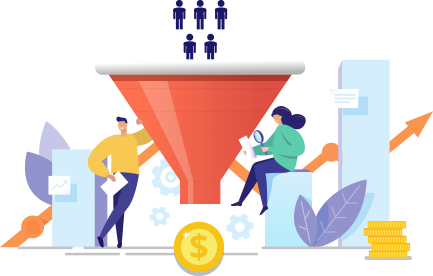
Businesses that don't use CRM have to wrestle their CRMs onto spreadsheets just to identify the problematic areas. Since most companies can't visualize their process, they are unable to pinpoint deficient areas and hence are unable to solve the problem.
With CRM, you cannot only visualize the data, but you can execute quick solutions to resolve bottlenecks with greater efficiency.
Sales process Bottle Neck Infographic

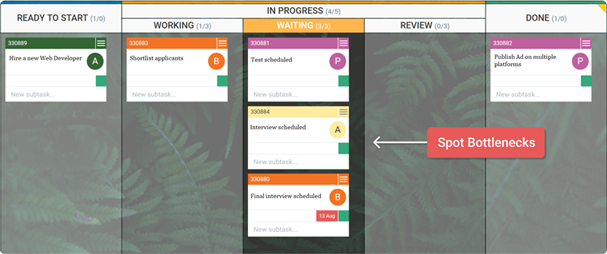
It includes the following data:
Sales funnel analysis reports: It shows where exactly your leads and customer are within the sales pipeline.

Conversion analysis: It shows the overall conversion rates across different sales teams.

Forecasting sales: CRM can predict expected sales and revenue by analyzing sales history and previous trends.

 Centralizes all Sales Operations
Centralizes all Sales Operations
Sales CRM helps businesses centralize all sales operations on a single platform leading to higher efficiency. Sales and marketing people don't have to juggle 101 applications to manage and nurture leads, which leads to fewer errors and higher efficiency.

On the sales CRM dashboard, sales representatives and managers can monitor sales performance, transactions, and orders in one place. Businesses can also integrate existing communicating channels with sales CRM and manage all teams from a single platform.
This way, all your teams have access to transparent data to help engage with prospects in different parts of the sales funnel.

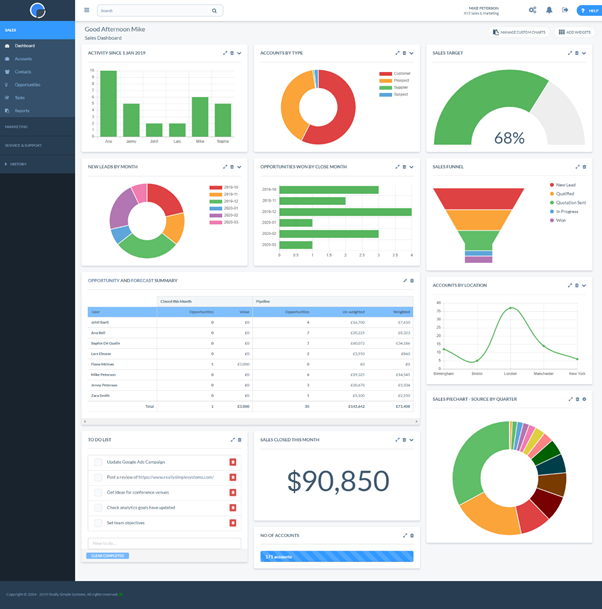
Service CRM
Today more than ever, service and customer support departments are essential for the success of a company. A sales CRM helps businesses acquire more customers, but Service CRM makes sure companies offer a great service experience to the customer after the sale.
84% of customers believe the experience a company provides is as important as its products and services. (Salesforce)
Therefore, Service CRM focuses on customer service to make sure these people come back for more. It makes sure that customers have an amazing experience with the brand at every touchpoint.
Most notably, Service CRM ensures that customers have instant access to support staff to resolve their issues. Automation of customer service processes leads to faster dispute resolutions and a good customer experience.
Main Features of a Service CRM
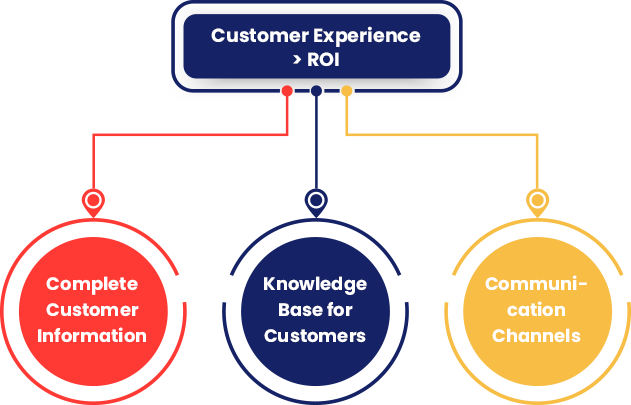
Here are some of the important features of service CRM you should look out for:
 Complete Customer Information
Complete Customer Information
Personalization is an essential component of good customer service. Therefore, one of the most important features of a good service CRM is collecting customer information, including detailed purchase history and past issues.
This way, businesses can easily identify which customers are old and which customers are new. More importantly, it makes it easier to keep the company from repeating the same mistakes. With every customer's history in hand, businesses can make intelligent decisions to provide a better customer experience to all customers.

Service CRM not only collects new customer data but also uses data gathered by other departments like sales and marketing to devise a more personalized approach.
 Complete Customer Information
Complete Customer Information
A dedicated service CRM does only include features to help customers in need. It also sets up a knowledge base for customers so they can try to solve the problem themselves quickly and with less effort.
A service CRM helps organize knowledge bases and FAQs using past CRM data so it can be regularly updated in little time.

It is very useful for businesses as it frees up customer representatives from handling small customer issues, as the customer can easily find the solution on the official website of the company.
It helps companies with the timely resolution of small customer problems, thus enhancing the overall customer experience.
73% of customers cite customer experience as an important consideration in their purchase decisions
 Communication Channels
Communication Channels
Service CRM is a tool for making things more efficient. It achieves this level of efficiency by giving the option of integrating multiple channels of communication on a single platform. By broadening communication channels and integrating them into service CRM, customer representatives can solve issues more quickly and efficiently.

You can access all customer complaints on various communication channels and solve them from one place. It also provides all the customer information to the representatives at a single click, so they don't have to waste their time going back and forth to fix the problem.
It also means the customer representatives will always be available for assistance as they can access service CRM from anywhere, anytime.
A 5% increase in customer retention efforts can increase profits by 25 – 95%
Marketing CRM
For a business to be successful in today's modern world, it needs a personalized marketing strategy to reach out to its customers. However, it is not as easy as it sounds because to achieve that level of success, businesses need analytics and customer data, which can be overwhelming for most people.
That is where a Marketing CRM comes into the picture.
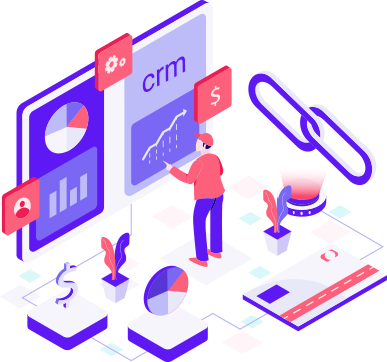
Marketing CRM software helps businesses plan and maintain their online marketing campaigns on a single platform. It integrates both in-person and social media approaches to help businesses reach out to customers on different platforms.
Main Features of Marketing CRM
Here are some of the most important features that every modern marketing CRM must have:
 Marketing Campaign Builder
Marketing Campaign Builder
One of the most important marketing CRM features is the campaign builder. Most businesses tend to lose track of their marketing processes which leads to false sales forecasts and planning.
Therefore, the campaign builder feature will allow marketers to access a neatly laid-out outline of each and every step of the marketing campaign.

It will help businesses understand where their leads and customers are in the sales funnel. It is a great tool to keep track of every detail of the marketing campaign and to enhance your user experience.
 Social Media Integration
Social Media Integration
It is common for modern marketing CRM to offer integrations to boost work efficiency. Almost all marketing CRM offers social media integration as it is very important in this digital age where most of your customers are online.
If your business relies heavily on social media marketing, you will do well to opt for a CRM that offers complete social media integration. With social media integration, you can manage all your social media accounts, including Instagram, LinkedIn, Twitter, Facebook, and more from one place.
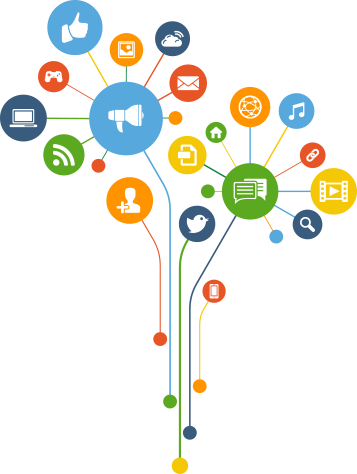
Social CRM allows you to automate your community outreach, making your SMM campaigns more effective. Keep in mind that social media is not an option for businesses but a necessity and key to the success of your business. So, with social integration, you can take full advantage of online features and automation.
 Automated Emails
Automated Emails
Automated emails are another important feature that you can find in the most popular marketing CRM. This feature is essential for your business to stay on top of what your customers want.
Marketing CRM can help you send personalized emails to your customers for higher customer retention. Heard of drip marketing? Marketing CRM allows you to set up automated emails to nurture leads for higher conversion.

Good marketing CRM software also help business compose emails that are necessary for targeting customers with special deals and discounts that they may be interested in. This is possible because CRM can collect and organize customer data to provide you with important analytics.
Therefore, Marketing CRM helps businesses with lead generation and helps convert those leads into customers.
Features for Business Analysis
A small business CRM is a lightweight CRM software that aims at small businesses alone. It is best for small companies, startups, and entrepreneurs. These CRM systems are based on basic functionality and are much easier and faster to implement than large-scale enterprise CRMs. Small business CRMs are not only compact but also have affordable pricing models.
Many entrepreneurs believe that CRMs are not necessary for small businesses or startups. Fact check? False!
CRM is essential for small businesses, especially if they want to keep track of their customer relationships. Small business CRM software also helps generate more leads, increase sales and lead to a profitable business.
Main Features of Small Business CRM
Let's have a look at key features of small business CRM:
 Contact Management
Contact Management
An important feature of small business CRM is contact management. The contact management feature incorporates an address book in the CRM that organizes and manages customer's contact details. It also allows businesses to edit contacts online so you can store updated customer information, interactions, and transaction history.

 Email Tracking
Email Tracking
A good small business CRM also comes with an email tracking feature so you can organize and manage your email marketing campaigns and customer outreach from a single platform. Some CRMs have a built-in email tracking feature, while most have it as an add-on.
You can integrate popular email services like Gmail, MailChimp, and Outlook. Email tracking allows businesses to capture email messages, customer contact details, and more to manage their emails.
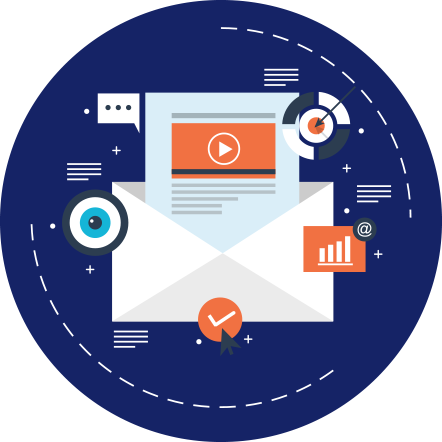
 Reporting
Reporting
Small business CRMs come with reporting feature that allows you to use customer data and analytics from your dashboard. With this feature, you can have in-depth information about your business trends and sales patterns.
A good small business CRM also gives you real-time data for accurate analytics for your company. You can also create weekly, monthly, and quarterly reports on a single platform without wasting time manually collecting data and analyzing it.

Most CRM software also provides the feature of exporting data and reports to provide insights and store them in physical form.
Social CRM
Social CRM is a modern tool that helps businesses generate campaigns for social media across every channel. Social CRM, or social relationship management is a software that focuses on customer communication through social media channels.
Social brings a new element into CRM because now instead of just dealing with data and information, we are dealing with conversations and relationships. These conversations and relationships take place not just from company to consumer but also from consumer to consumer.
- Jacob Morgan, coauthor of Twittfaced
Social CRM is an important tool for social customer relationship management on various social media platforms such as Facebook, Instagram, Twitter, LinkedIn, and more. Social CRM is a great tool that helps businesses with sales, marketing, and customer service.
Main Features of Social CRM
Here are some of the most important features of a good social CRM:
 Customer Profiles and Data
Customer Profiles and Data
The first and foremost feature of social CRM is the ability to collect customer data to build their profiles. Social CRM helps businesses get the complete picture of each and every customer or lead they are connected with on social media.

Data collected includes:
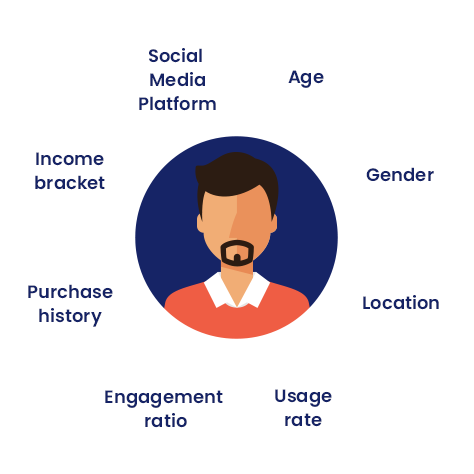
A good social CRM also includes an auto-update feature that automatically updates customer profiles by scanning various social media networks. This way, you will know more about your customers and followers and will be able to provide them a more personalized experience and content.
 Social Media Management
Social Media Management
Social CRM allows businesses to handle all their social media accounts from a single platform as it can sync all social media platforms. Meaning, a single post can be uploaded on various social media channels at the scheduled time. For example, you can automate posts for Christmas, New Years', and other major events
Similarly, social media integration also allows CRM to capture all messages from different social media accounts in one inbox. With all the data at hand, Social CRM also gives businesses comparative analytics for all social media posts on different platforms.
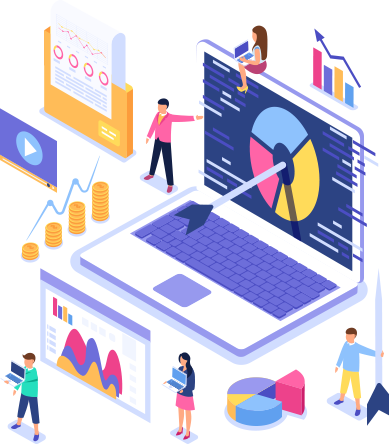
 Social Media Metrics
Social Media Metrics
Social CRM also allows businesses to analyze SMM campaign metrics to identify potential growth and problem areas that can be improved.
Here are some social media metrics that are provided by a good CRM:

Traffic:
Social CRM lets businesses monitor online traffic and click-through rates (CTR) of brand pages on different platforms.

Engagement:
Good CRM software lets you analyze social media engagement by breaking data into likes, shares, comments, and reports to see how people are reacting
to your posts.

User Data:
With CRM, you can tally up your social media followers and see who they are and how active they are on social media.

Mobile CRM
Mobile CRM is fairly new, but it is growing at a rapid rate owing to digitalization. Your customers are on mobile phones – interacting with your brands on mobile apps, making purchases on mobiles, and more. So, that's where you need to be!
The number of mobile phone internet users is predicted to increase to 275 million in 2022 in the US and that is a very good indicator of the increasing popularity of mobile CRM.
The global mobile CRM market will grow 11% to $15 billion worldwide in 2021 (Marketing Drive).
Surveys show that more and more companies are adopting mobile technologies to retain their customers and get ahead of the competition. It makes sense as well; mobile access helps companies increase their operational efficiencies.

(Source: super office)
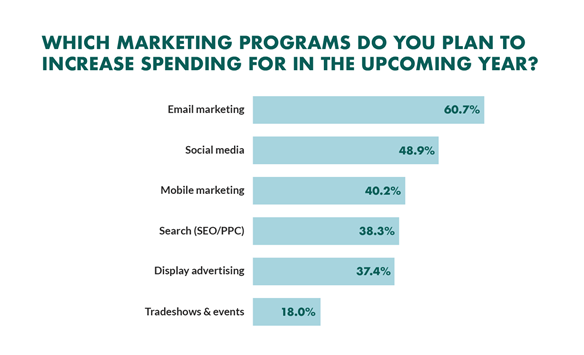
Mobile CRM will help you stay informed about your user's interactions across various channels. It can do everything that a basic desktop CRM can, with extra portability and flexibility. With mobile CRM, you have access to all the information you need anywhere.
Main Features of Mobile CRM
Here are some of the features that you absolutely need in a mobile CRM:
 Acquisition Management
Acquisition Management
Acquisition management allows businesses to track the acquisition of users from various channels, including paid ads, referrals, organic sources, and more. It also helps you measure the ROI of different campaigns so you can see which one gives maximum value.
Without an acquisition management tool, your mobile marketing is not complete. It will help businesses track:

 Total money spent on acquisition campaigns
Total money spent on acquisition campaigns  Number of new users and return users
Number of new users and return users Cost per user
Cost per user Individual/ total campaign revenue
Individual/ total campaign revenue
 Real-time analytics
Real-time analytics
Another important feature that most mobile CRMs have is real-time analytics. Real-time analytics and data will help you analyze how well your apps and websites are performing and key areas for improvement.
When it comes to analytics, you want to ensure that mobile CRM offers real-time data and not pre-populated data as it is not accurate. Some of the important metrics that mobile CRM will help you track and analyze are:

 Number of new users
Number of new users Time in-app
Time in-app Total session length
Total session length Funnel growth
Funnel growth  Retention
Retention
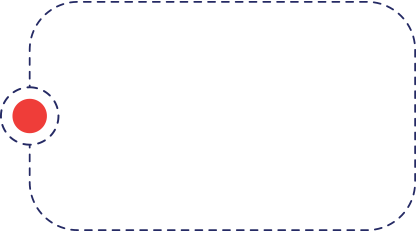
 Abandonment rates
Abandonment rates Email CTRs
Email CTRs Transactions per customer
Transactions per customer  Revenue per customer
Revenue per customer
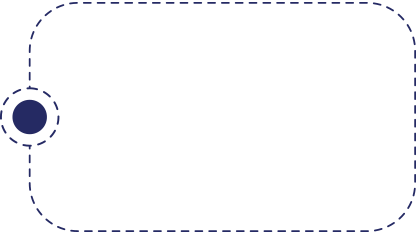
 Streamlined Integration
Streamlined Integration
Mobile CRM provides smooth integration with various communication tools and platforms so you can automatically log details from phone calls, including time, data, and call recording. It allows integration of business calendars and sync information regarding deadlines, appointments, and meetings from different platforms like Outlook, Gmail, and more.
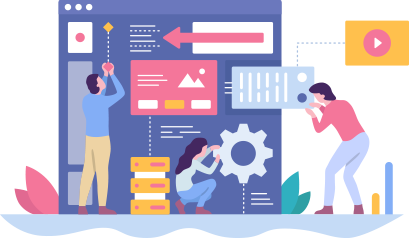
It will ensure that you never miss an important meeting or a deadline. Most mobile CRM also provides users with the option of working offline. It allows users to look up information and make changes on the CRM platform when they don't have access to Wi-Fi.
How to Choose the Right CRM for Your Business?
As you can see, you have multiple choices when it comes to choosing a CRM. Discussed above are some of the most popular types of CRM software that you can find in the market.
These CRMs offer different features to meet the unique needs of every business. Therefore, it is essential to understand which type of CRM your business needs.
If you are having trouble choosing a CRM, ask yourself these questions:
1
2
3
4
5
Do you want to automate your sales or marketing?
Do you want different departments at your company to collaborate closely?
Do you want to establish long-term relationships with your customers?
What features do I want in the CRM?
Is the CRM built for small businesses?

There are different kinds of CRM software available, so it is essential to invest in the right one for your business. Otherwise, you will end up wasting a lot of money on a CRM that does not fit your needs. But now you know the features of the most popular types of CRM, which will help you make the right choice.
Have a project in mind?
Let's talk about it.
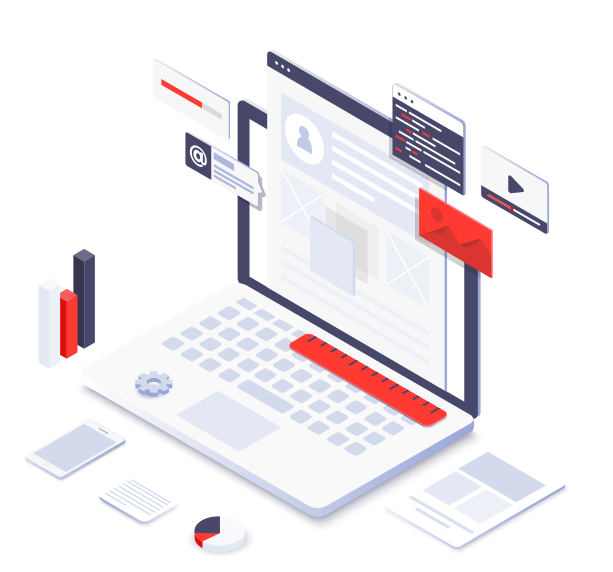


















Get the Whole page contents Case Study PDF

Save Case Study for offline access or to share it with your team.

Download Case Study PDF

We respect your privacy. Your email won’t be shared.
Click below to download the pdf.